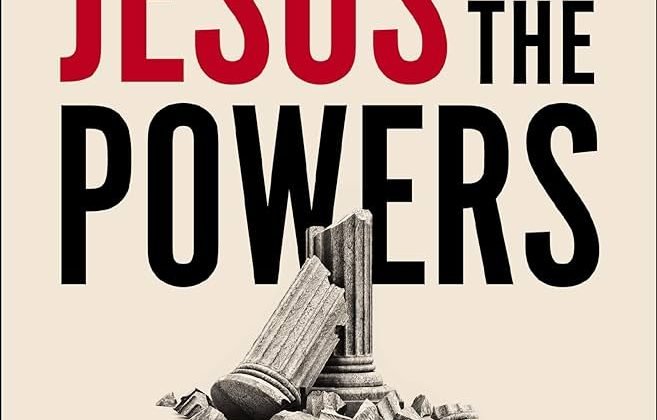

I finally managed to get a copy of N.T. Wright and Michael Bird’s book Jesus and the Powers. I’m looking forward to digging into it.
Christianity Today recently published a short interview with Wright. Here is a taste:
In your introduction, you referenced previous works of yours and Mike’s have partly inspired this book. But I was wondering if you could speak more about its biblical or theological underpinnings?
One of the things that’s really come strongly to me over the last couple of decades has been the role of human beings within God’s good creation. The idea in Genesis 1, the creation of humans in God’s image, means that God is committing himself to working in the world through human beings.
In Western theology, we often read Genesis 1–2 as God’s setting human beings up to a moral examination, which they then fail. That gets the whole conversation off on the wrong foot, instead of around the question of how is God going to wisely rule his world through obedient, responsive human beings if they’ve messed up and if they’re worshipping idols? The answer is that God has rescued them from their idolatry so that they can run his world as his vice regents in the way that he wants.
For me, one of the key texts that jumped out to me when I was first working on this is from John 19, where Jesus says to Pontious Pilate, “You could have no authority over me unless it was given you from above.” So, Jesus acknowledges that this second-rate Roman governor has a God-given authority.
In other words, yes, rulers have a God-given authority, and God will hold them to account for what they do with it. … The early church, like the Jews, thought it was their responsibility to critique them. It’s like the prophetic witness of John the Baptist saying to Herod, “You’re out of line here,” or Jesus himself telling the rulers and authorities that when they were misstepping.
Faithful Christian engagement with politics isn’t saying to political leaders, “You don’t have God-given authority.” It’s saying, “We’re going to be your critics in how you’re using that God-given authority.” I suspect most people in most churches in the Western world—let alone anywhere else—have never even begun to conceive of it like that. But until we do, we won’t understand what the church’s responsibility should be.
Read the entire interview here.
“We’re going to be your critics in how you’re using that God-given authority.” That sounds about right. The church does not affiliate with political parties. It holds government accountable, regardless of who is in office. There’s a lesson here for all of us.
Yes. But even though churches as institutions don’t affiliate with political parties, they are deeply compromised in the US by several factors, one being that their members–who in Protestantism run the church through elections, choosing ministers, etc.–do affiliate with political parties by joining them. Given how deeply one’s actions, affections, judgments, and even perceptions are affected by party membership, we should really think about whether that’s wise. My bet is Jesus’s “you cannot serve two masters” applies here in spades.
So true, John. I guess I was referring to the “church” as the people of God.